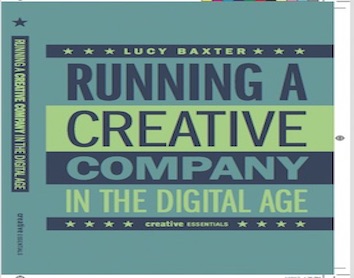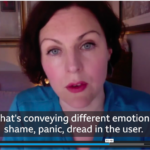My book Running a Creative Company in the Digital Age, will be released on 24th February 2017.
This is, obviously, a book about how to set up and run a creative company in today’s climate. It’s an accessible, nuts and bolts guide covering the lifecycle of a creative business through the stages of start up, growth, and selling or winding up – something I felt was sorely needed, and could certainly have done with myself in the beginning.
It is also a call to arms for a more progressive attitude to work in the creative industries, and particularly film and TV.
I ran my production company Mandrake Films from 2008 to 2016. It was a wonderful experience and a steep learning curve.
When I became a sole parent, and the job became too much with the added stress of very difficult personal circumstances, I assumed that it would be possible to take a break and work part time for someone else.
Having always been flexible with my own staff, fitting around their lives on the assumption that they were talented and hard working enough to get the job done, I assumed that others in the production industry were doing the same. I was confident that, for me as a very experienced producer, flexible working was an option. In my case, it wasn’t.
The book emerged in part from a desire to suggest a way forward, and talk to those who were leading the charge. I interview a wide range of people, including joint CEO of flexible working charity Timewise, head of the C4 Growth Fund, the progressive MD of a forward thinking digital agency and CEO of creative tech investment company Capital Enterprise.
There are so many areas that need dragging into the 21st century. Flexible working, job sharing, genuine diversity in gatekeeper roles as well as in front of and behind the camera, paying key creatives properly and respect for people as rounded human beings who can get the job done in their own way and their own time – these things are key to the future health of our creative workforce.
We need to reorganise working spaces to accommodate different personality types (ditch the hot-desking and open plan, give people options for retreat and concentration as well as interaction) and stop shooing creatives away from business and finance.
Too often, the originator and creative driver of a project is not paid enough to make a living. Indeed, creatives themselves should stop pleading ignorance and the lack of a business head – it just gives those who control the purse strings and write the contracts an excuse to exclude them further. Creative tech companies are dominating the landscape with their adaptability, can-do attitude, smart creative/finance pairings and investment savvy; let’s take a leaf out of their book.
More women, and more people from a range of socio-economic, gender identities, and ethnic backgrounds, need to set up shop in our creative industries and thrive there. We need their contribution to and representation in our culture.
That’s why we need organisations like Raising Films and Timewise. Let’s stop paying lip service to this stuff, and do it for real.





